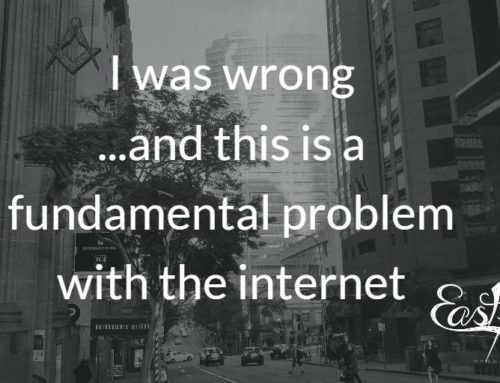None of us are safe from the anchoring bias.
The way we reason is coloured by our experiences, our parents’ experiences, where we live, what we do. And little behavioural shortcuts are hardwired into our brains—these might help us make quicker decisions, but they don’t help us make better ones. One of them is the ‘anchoring principle’—where you base your decision on a reference point (an anchor) that might be incomplete or irrelevant, or both.
So … you’re on your way to a birthday lunch. Running late, need a present, storm into a shop. Everything is either $75 or spectacularly ugly—you end up settling on a coaster set of questionable utility and unique aesthetic qualities. They kinda sorta maybe might like it. And it’s $49.95. About $30 more than you would otherwise have paid for a better item in a differently priced shop.
Anchors change our frame of reference—even thinking about a price to conclude that it’s ridiculous makes your brain look for examples in which it might work. Which businesses ensure are right in front of you. Was $5.10, now $4.85 … save 25c.
Or at a restaurant: all food is $30+. Except the sliced tomato salad with no dressing or flavour, which is $21.
You have probably never made a completely objective decision in you life.
Not even if you’re a judge—and that’s part of the job description, right?
In a study about cognitive biases, judges were given a questionnaire to fill out—half with a personal injury case in front of them and compensation figure ($75K) put in their heads and half with the same situation but no threshold. Although they were looking at the same facts otherwise, the judges that weren’t told about the threshold awarded about $350K more than the rest of the sample.
There you go. Lawyers are human too.
Now if you’ll excuse me, I’m late for a birthday party.







[…] Update: Learn about anchoring bias. […]